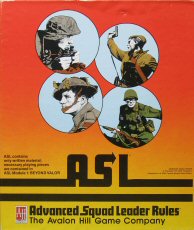[In the first post, I talked about how randomness can define the feel of a game. Now, I'm going to talk a bit about the type of player skills that randomness puts to the test.]
 And then online play continues until someone finds a new imbalancing strategy.
And then online play continues until someone finds a new imbalancing strategy.Does that sound like fun to you? Obviously, for millions of Starcraft online players, it must be. However, it's also a big turn-off for more casual players. Starcraft has turned into a very chess-like game, in which turn orders dictate the relative capabilities of the players. Turn orders (build a barracks, build four marines, etc.) are very deterministic, and they're arguably more important than battle tacti
cs. The marginal advantage you get from knowing where to position your siege tanks is much smaller than being able to manufacture siege tanks at a faster rate.
There's randomness in Starcraft 2, but it's not in the places where it can provide some breathing space for a new player. (Except, of course, if he's playing against an equally new player, which is one reason why Blizzard put a great deal of effort into matchmaking features.) Randomness is almost invisible in the game, so players don't give it much thought.
Boardgames sometimes follow this design approach. While I have little experience playing Age of Steam, I know that a more experienced player will make much better decisions governing what to do each turn, and where to do it. I'll be at a severe disadvantage against very experienced players, who eliminate bad choices with the same efficiency as good chess players.
If you were to make these games more random in the places where they're deterministic, a veteran player will still have a significant advantage over an inexperienced one. However, the game experience will be much different. Rather than feeling as though you're cracking

the puzzle of What's the optimal move this turn? you feel as though you're making choices among competing strategies. In the first case, you're trying to calculate what will work. In the second case, you're playing with options for what might work.
During one Advanced Squad Leader session, my friend and regular opponent Paul was having a very bad game. It looked as though, by the middle of the game, I was cruising to an easy victory. I urged him to hang in there, since (a) Paul is an excellent player, and (b) his luck could easily turn.
Paul won the game, after making some excellent tactical decisions. Luck mattered, both early in the game when it slapped him around, and later when Dame Fortune seemed a bit more even-tempered. However, Paul's skill as an ASL player really determined his victory. To win at ASL, you need to plan a couple of moves ahead, while still adapting to unexpected twists of fate. That is almost the definition of "the management of violence," the essence of military strategy in the 3-D, non-cardboard world.
I prefer games that challenge me in that fashion over the more deterministic games like Starcraft 2. Not everyone shares that preference. Managing risk and opportunity defines my kind of game, from ASL to Cosmic Encounter. Determining risk and opportunity in a game like Tammany Hall (a very deterministic design) just isn't as fun for me. I'm also not a big puzzle solver, other than crossword puzzles. The two preferences are definitely connected.
No comments:
Post a Comment